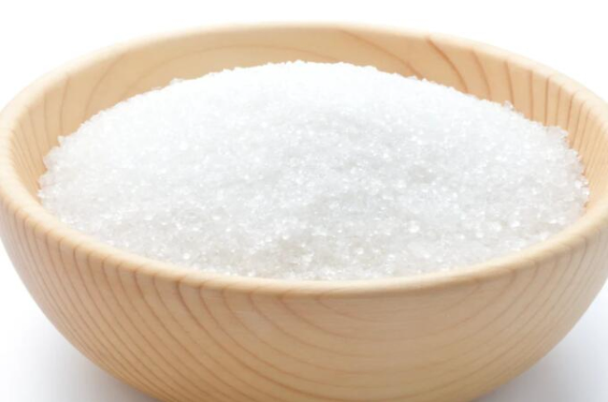Allulose is a rare sugar that occurs naturally in fruits such as figs and raisins. Its sweetness is about 70% that of sugar. So it's a little sweeter than regular sugar.
Alkaline sugars (called sucrose) are the most well-known sweeteners. However, there are many other types of sugar that are found in or added to foods. There is a monosaccharide called a monosaccharide, which contains a sugar molecule. These include glucose, fructose, galactose, ribose, and xylose. Then there are the disaccharides, which are two sugar molecules that are held together like sucrose, lactose, and maltose.
Allulose is a simple sugar. It has 90% fewer calories than sucrose, which makes it almost calorie-free. Researchers have recently discovered ways to produce allulose on a larger scale, which could make it a popular sweetener in the future.

Is allulose healthy?
The United States Food and Drug Administration says "allulose" is recognized as safe (GRAS).
Basically, we know that eating small amounts does not cause any harm to people. What is recommended is that no matter what you're using, whether it's natural sugar...... Or any artificial sweetener, you have to use it in small amounts to the best of your own judgment. Because we don't want to rely too much on them.
If you follow these recommendations, allulose can be a great substitute for regular sugar.
Interestingly, it is not metabolized by the body. It is absorbed by the small intestine but is actually excreted from the body. As a result, no kind of heat is absorbed or stored in the body. Although the research done is limited, it has been found that (allulose) has no effect on blood sugar or insulin response. ”
Does allulose cause side effects?
Most people who eat sweets in moderation don't notice any major problems. But it's worth noting that everyone has a different tolerance to artificial sweeteners. One side effect that people see is gastrointestinal discomfort, such as bloating, or problems going to the toilet.
Therefore, it is a good idea to include a small amount of allulose in food at first.
When it comes to finding your limits, it's more about trial and error. But if you eat small amounts throughout the day, or only a small amount during the week, you won't have any side effects.
Who should use allulose?
If you're looking to reduce your sugar intake or total calories, allulose can be a great alternative. You can use it to make baked goods, frozen desserts, or your favorite beverage.
Due to the extremely low sugar content of sweeteners, people on ketogenic or "keto" diets began to use maltose more. People on a keto diet consume very few carbohydrates. Allulose doesn't have much, so it's a great choice for keto-friendly candies.
Allulose also doesn't affect your blood sugar or insulin levels. Therefore, it is a great option for people who suffer from certain medical conditions such as diabetes.
Allulose is most beneficial for two groups of people, who are diabetics and especially those who are trying to lower their blood sugar. There are also those who are overweight or obese and who try to cut calories.
Who should not eat allulose?
If you are allergic to any artificial sweeteners or alternative sweeteners, you should stay away from allulose. But allergies to these sweeteners are uncommon.
Experts are still studying the effects on humans of the constant use of artificial or alternative sweeteners.
The controversy is, [experts] say, that sometimes these can lead to cancer. Of course, most of the studies that have come to conclusion are animal studies. But if you have a family history of cancer, or are undergoing treatment, you may need to experiment and be careful with the amount of [alternative sweeteners]. Because we don't want to increase the risk of further cancer.
Most importantly, experts recommend a balanced diet.
Try to eat whole, high-quality foods with minimal processing and low sugar content. Use these alternatives and sugar alcohols in moderation.
 The regulation of Monk Fruit Extract (also known as Luo Han Guo extract) varies across different cou
The regulation of Monk Fruit Extract (also known as Luo Han Guo extract) varies across different cou
 Health Canada Approves Monk Fruit Extract as a Natural Sweetener
Health Canada Approves Monk Fruit Extract as a Natural Sweetener
 New Breakthrough in Allulose: A Healthier Sugar Alternative Gains Momentum
New Breakthrough in Allulose: A Healthier Sugar Alternative Gains Momentum
 Understanding Reb-M: The Benefits of a Next-Generation Sweetener
Understanding Reb-M: The Benefits of a Next-Generation Sweetener